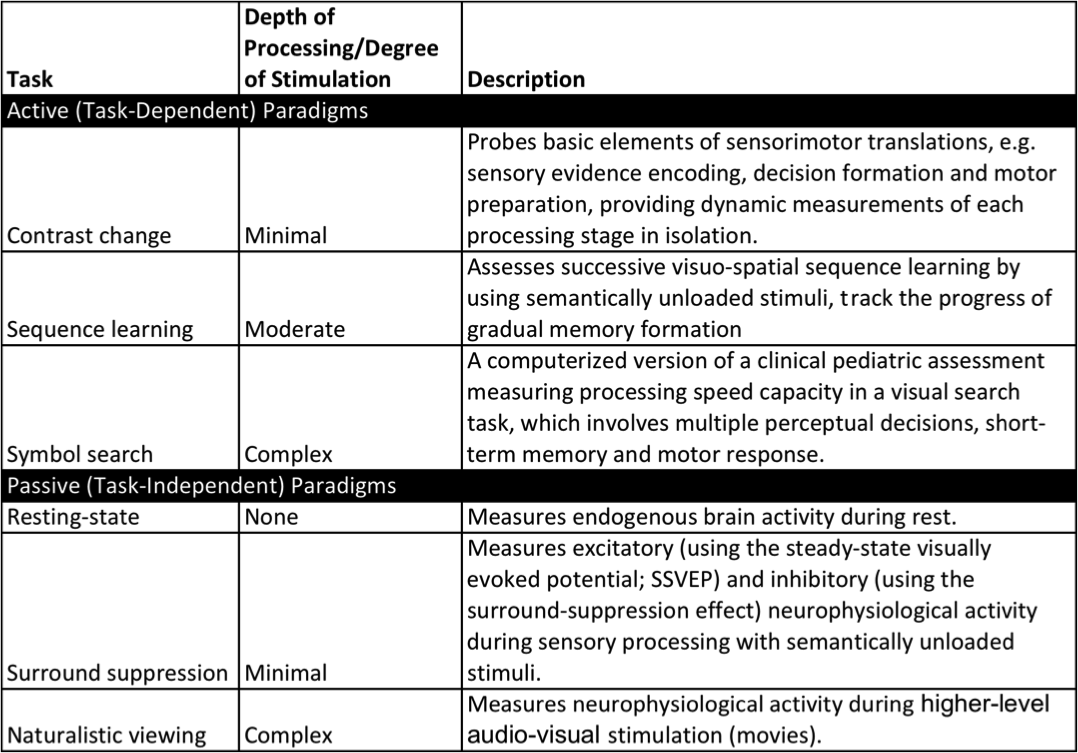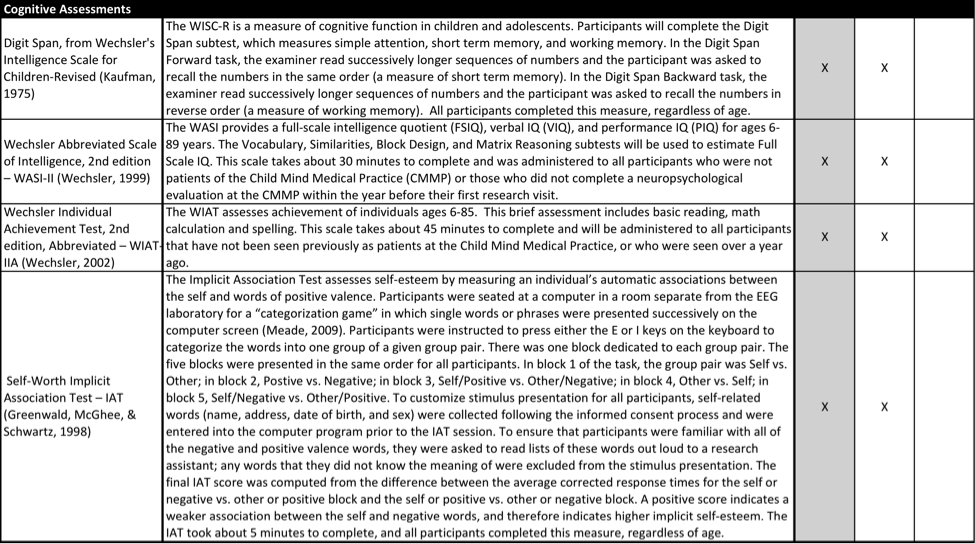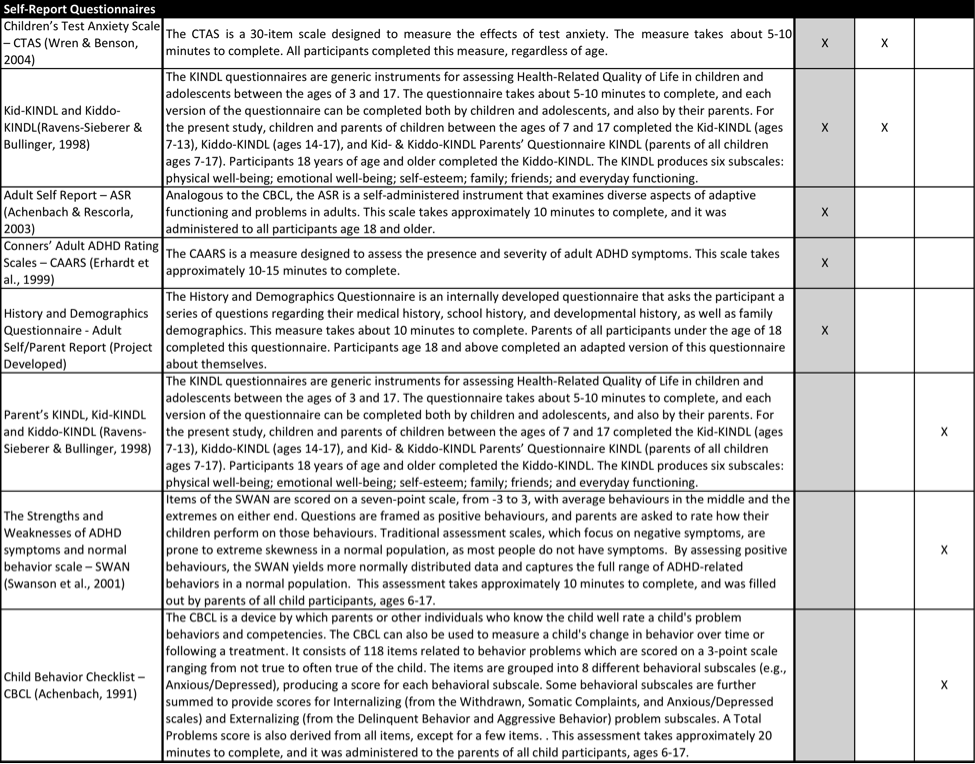Assessments¶
In conceptualizing the targets for assessment in the MIPDB, we made use of a basic three-stage model of task performance: a) sensory perception b) integration of information (i.e., accumulation, integration and elaboration of information), and c) response generation (i.e., motor preparation, execution). Our task-based paradigms cover these different processing steps and offer the possibility of distinguishing between multiple possible mechanistic explanations for impaired accuracy and/or response. Our task-free paradigms permit examination of intrinsic functional network responses to different degrees of external stimulation, e.g., none at all (classical resting-state); simple and reduced (surround-suppression paradigm); and complex and rich (videos). These neurophysiological measures are complemented by standardized, abbreviated tests of intelligence and academic achievement, as well as a broad selection of self-reported (and parent-reported, for child participants) measures of psychiatric functioning.
EEG and Eye-Tracking Paradigms¶

Behavioral and Cognitive Paradigms¶




